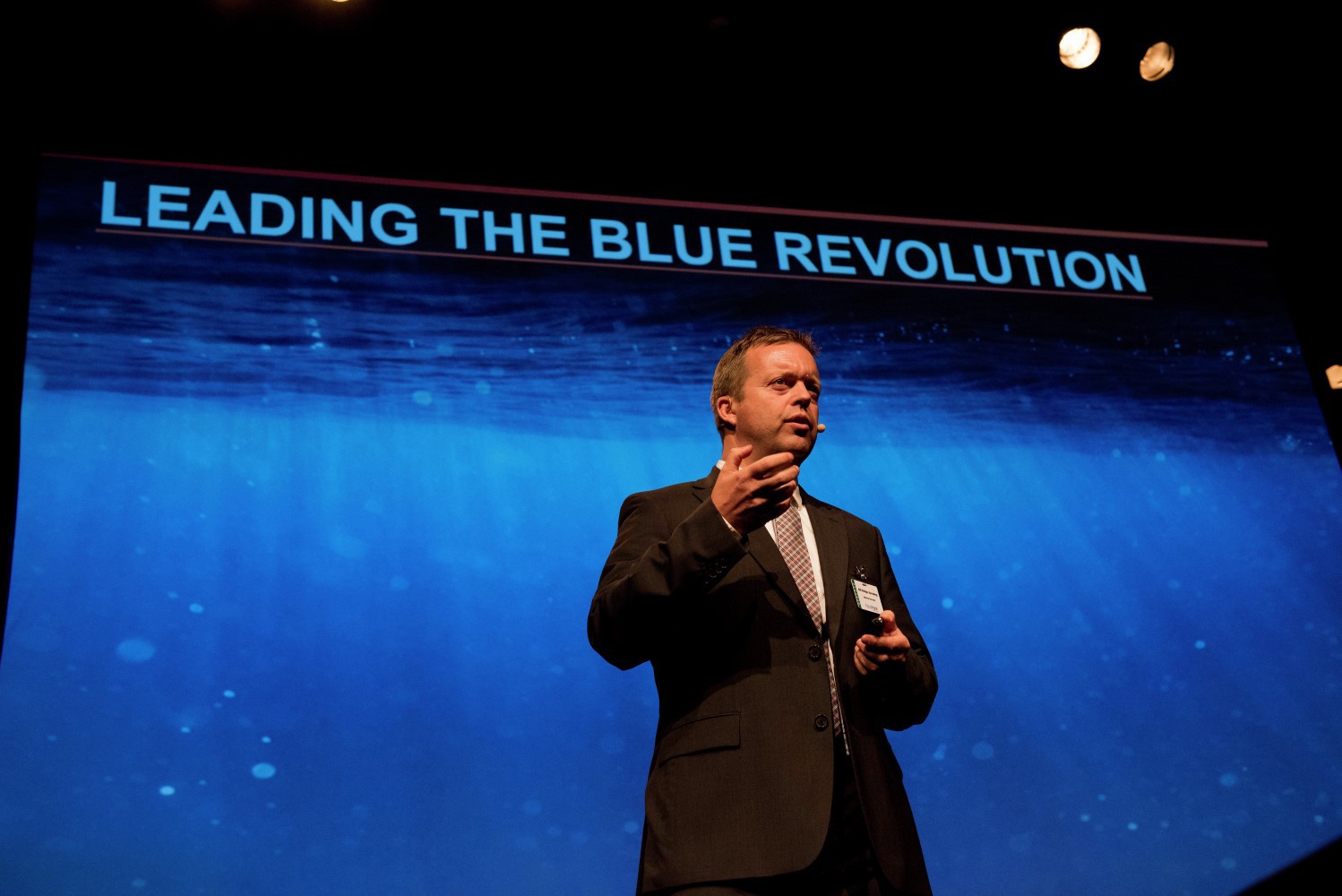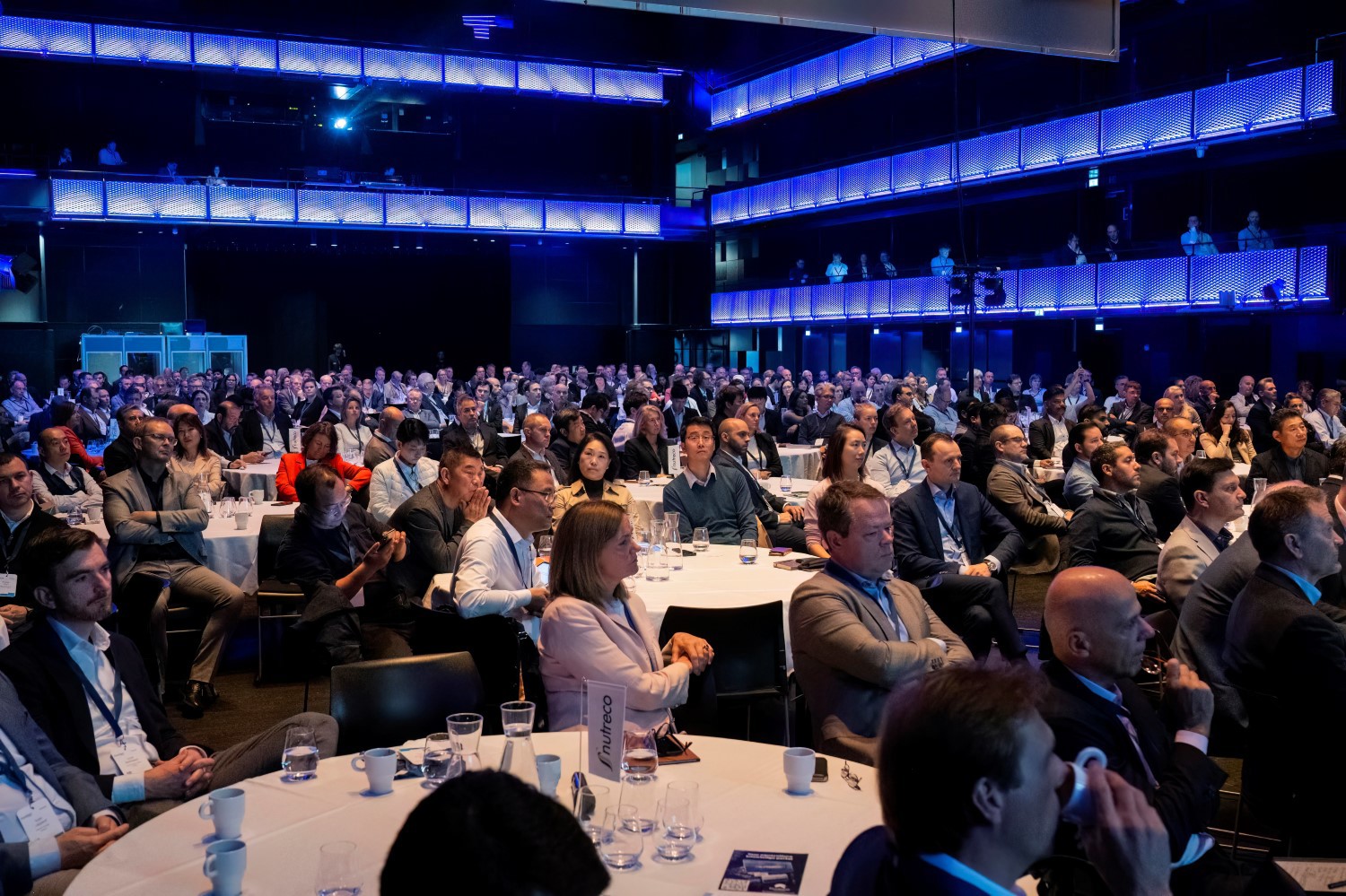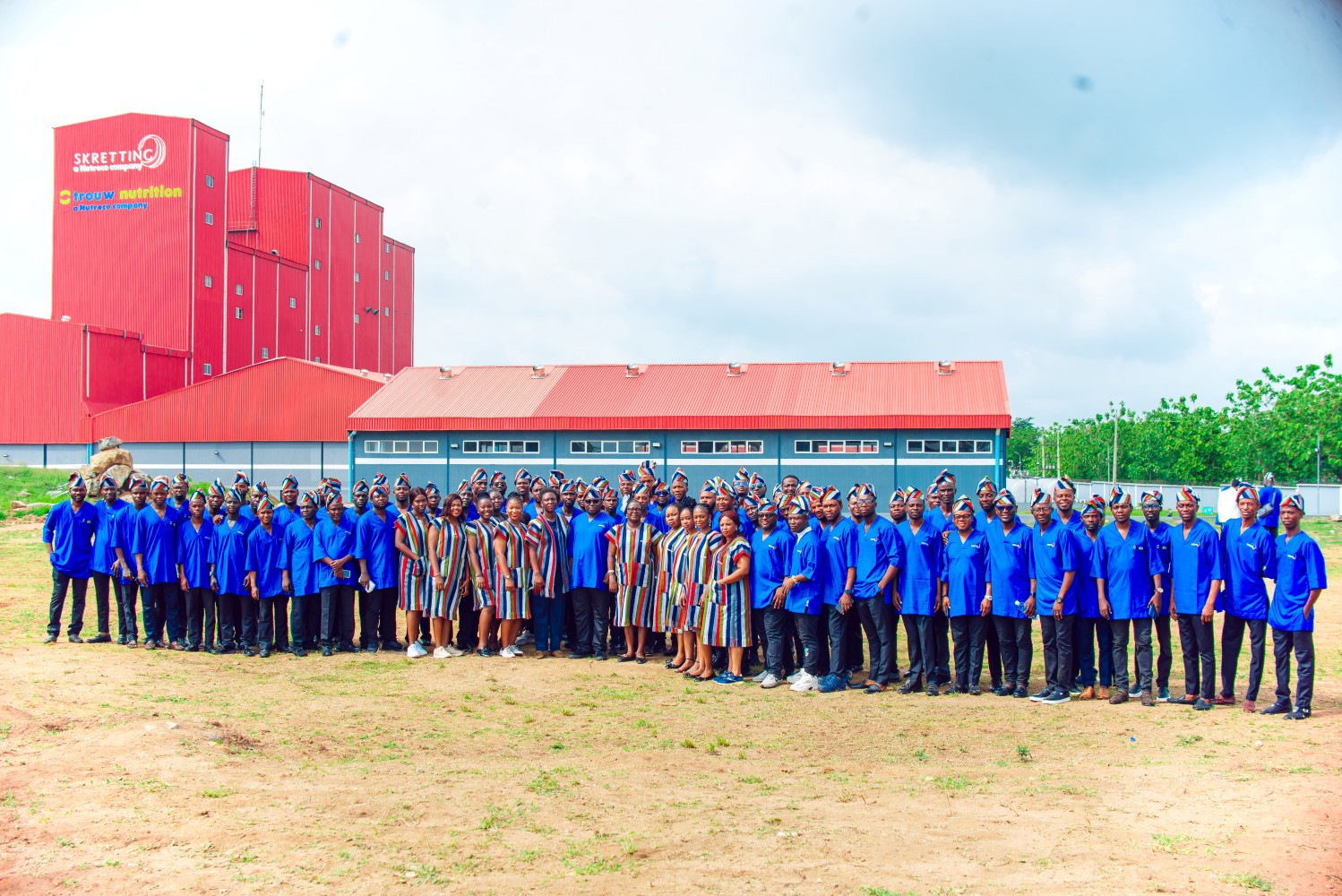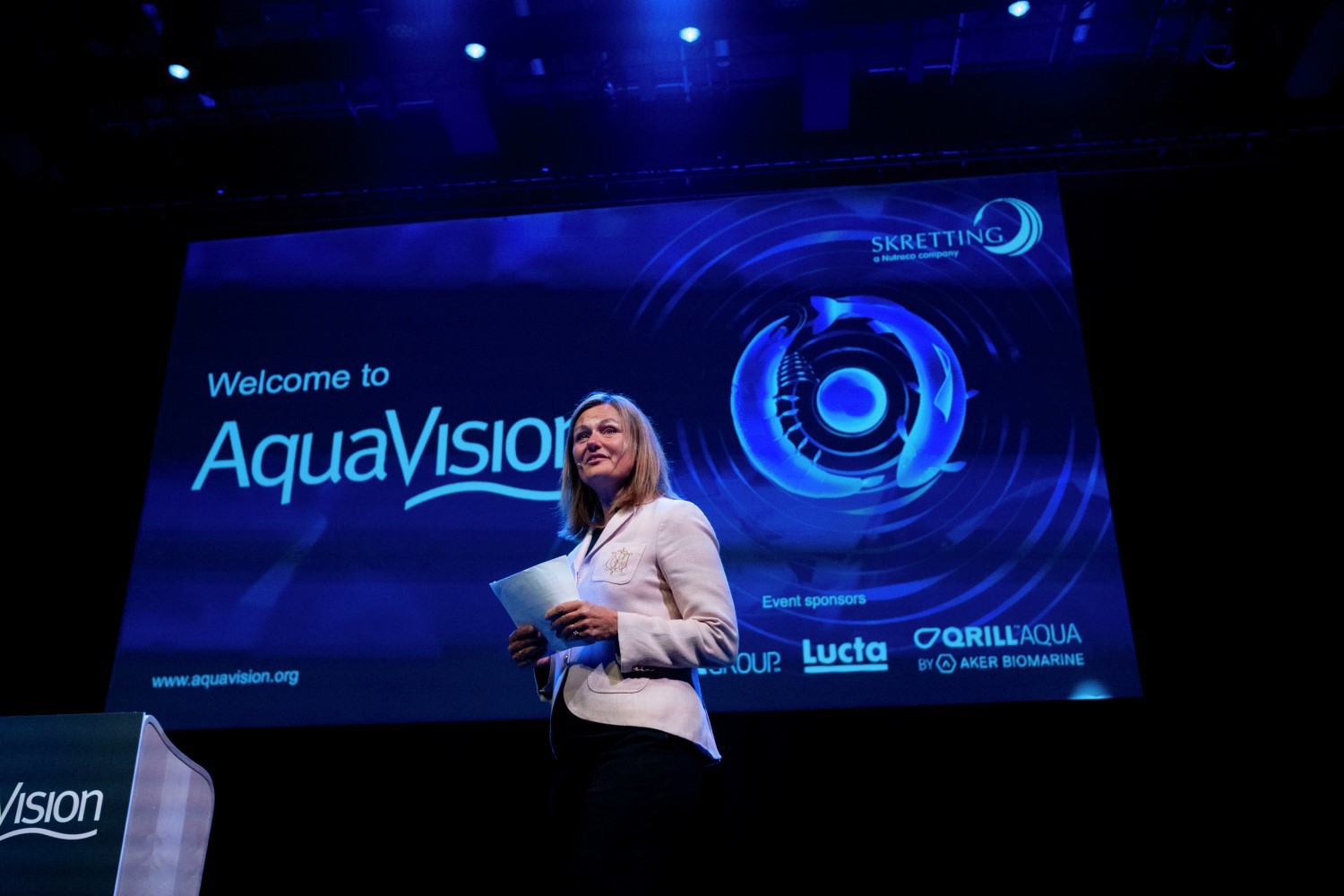Innovation and collaboration are central to achieving long-term sustainable aquaculture growth, delegates heard on the opening day of the AquaVision 2016 conference in Stavanger, Norway.
AquaVision 2016: Innovate and collaborate to ensure Blue Revolution success

Providing insight within the ‘Blue Revolution’ theme of the conference, guest speakers Alf-Helge Aarskog (CEO of Marine Harvest), Ragnar Tveteraas (Professor at the University of Stavanger) and Avrim Lazar (Consultant to the Global Salmon Initiative – GSI), all stressed the need to increase the level of inventive progress across the aquaculture industry.
Aarskog highlighted the huge imbalance between the size of the ocean and its current contribution to the human diet – providing just 2% of the food that people eat, despite occupying 70% of the Earth’s surface. He also warned that the global production of salmon – one of the industry’s core species – had fallen into decline this year.
“The salmon industry must get back on the growth track. We need more production areas, we need to find alternative feed sources, new technology, and to solve our biological challenges cost-effectively,” said Aarskog.
He gave detailed four new offshore R&D projects now being developed by Marine Harvest that the company believes could increase its production without impacting marine environments or exposing the fish to biological challenges such as sea lice.
In his presentation, Tveteraas said global aquaculture had made some impressive productivity gains, but added that innovation was essential to maintaining the industry’s growth.
“You cannot continue with the existing technologies and the present ways of doing things over time. We need innovations that improve the biological performance of aquaculture species,” he said.
Although different species require specific knowledge and technology, the industry as a whole is facing many common challenges, said Tveteraas, who believes many solutions could be found in greater cross-sector collaboration.
“If aquaculture is to achieve the desired growth, it must invest in research and knowledge-based innovations. For many farmers it will be too costly to find their own solutions. But cooperation on knowledge and innovation can make it possible to achieve future growth and competitiveness,” he said.
Similarly, because consumers don’t differentiate between individual companies, the aquaculture industry also has a responsibility to protect its shared reputation and should look to respond to global pressures collectively, said Lazar.
“Knowing when you need friends can make a big difference when it comes to dealing with issues,” he said. “I’m not saying that competitors shouldn’t compete, but quite often the problems that you are facing can only be dealt with by a group.
“I agree with all the speakers who have said the world wants to be fed with healthy food. We certainly have it and I believe that many of our biological challenges will be overcome. At the same time, new challenges will arrive. So while we are already one of the most sustainable industries in the world, we will improve,” said Lazar.


